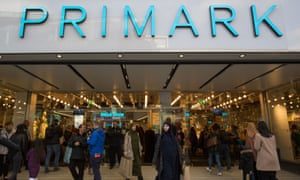Primark trading ‘stronger than expected’ post-lockdown

Associated British Foods (ABF) has announced that Primark’s trading in the fourth quarter has “exceeded expectations” ahead of its full-year results, which are set to be announced on 3 November.

Join 15,000 retail professionals with a membership
Get unlimited access and stay in the know. First-year special offer pricing. Cancel any time.
You have read 2/2 free articles this month.

How many members should have access to the subscription?
Monthly
Yearly
Save £9.89
No, thanks
I already have an account

Associated British Foods (ABF) has announced that Primark’s trading in the fourth quarter has “exceeded expectations” ahead of its full-year results, which are set to be announced on 3 November.